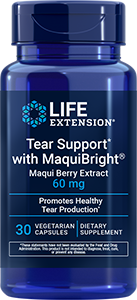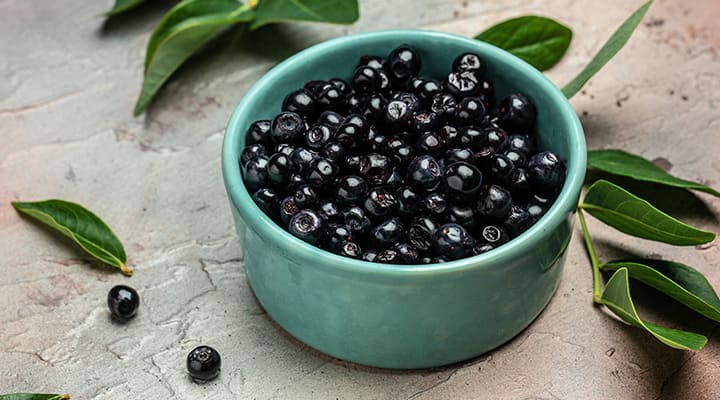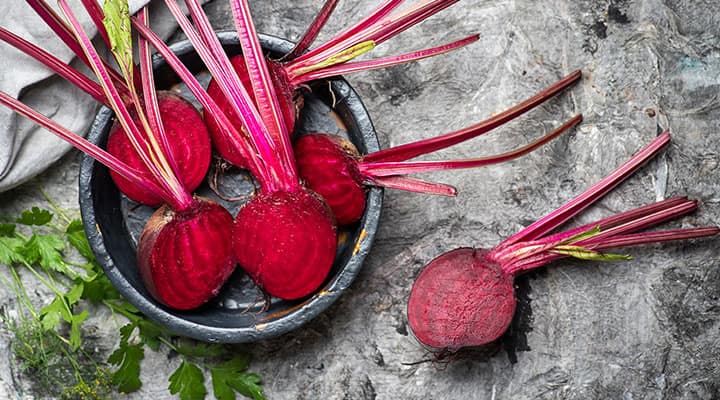
Maqui Berry Benefits, Uses and More
Published: November 2023
You've heard of the strawberry. You've heard of the blueberry, and maybe the acai berry. But…have you ever heard of the maqui berry? The superfood is overflowing with antioxidants and other things your body craves. So, let's talk about what this berry is and some of the health benefits it offers.
What are maqui berries?
Maqui berries (also called Aristotelia chilensis, the purple-blue berry, or the Chilean wine berry), are purple-black in color and grow natively in parts of South America, including Chile and Argentina. The flavor is tangy, not unlike raspberries and blueberries.
For thousands of years, the leaves, berries, and stems of Aristotelia chilensis have been harvested for medicinal purposes. However, locals also eat them fresh and drink their juice. If you can't find them locally, you can commonly find this superfood in the form of freeze-dried maqui berry powder, perfect for smoothies, and in supplements.
Why are maqui berries so healthy?
All fruits have some health benefits, so what's so special about maqui berries? Well, maqui berries are brimming with anthocyanins, which give the berries their pigment. Anthocyanins offer tons of health benefits. That's why we're often told to "eat the rainbow." The more pigmented your fruits and veggies are, the more likely you are to get the important nutrients your body needs. Additionally, maqui berries are particularly rich in a type of anthocyanin called delphinidin. In fact, they're the richest source of delphinidin in any anthocyanin.
Plus, all anthocyanins belong to a group of compounds called flavonoids, which have a stellar antioxidant content! This is one of the biggest reasons why maqui berries offer so many benefits to your health: Maqui berry extract may be able to support your oxidative status.
3 maqui berry benefits
Anthocyanins…delphinidin…flavonoids…antioxidants…what does all of this mean in terms of health benefits? We're so glad you asked! Here are the top three ways that maqui berries can benefit your body thanks to its outstanding nutritional profile.
1. Maqui berries keep your eyes healthy
Our eyes experience a lot of wear and tear every day. Just think about how much time you spend in front of your computer and phone. It's no surprise we run into eye-related issues over the years.
Thankfully, antioxidants can help your eyes function optimally, even as you age. More specifically, research says Aristotelia chilensis can even increase tear fluid production and protect against eye fatigue. This has been demonstrated in several human clinical studies:
- In a pilot study, volunteers took either 30 mg or 60 mg of maqui berry daily and had their levels of tear production assessed. After 30 days, both groups noted improvements in eye lubrication, with a 26% improvement noted among participants taking the lower dose and a 45% improvement among those taking 60 mg.
- This study was followed up in 2019 by a randomized, controlled trial in Japan (considered the "gold standard" among the scientific community) in which half the volunteers took 60 mg of maqui berry while half took placebo. Both groups had their levels of tear production assessed and after two months, those taking maqui had a 45% increase in tear production.
- A more recent randomized clinical study (in 2023) conducted in Japan showed similar results among those who received maqui vs. placebo.
Are these numbers making your eyes pop out of your head? Well, with a little help from this blue-hued berry, at least those eyes will be more comfortable and lubricated!
What Other Nutrients Benefit Eye Health?
Maqui is an ocular health legend, but it's not the only option when it comes to vision support. Here are some other nutrients that have been studied for their support of healthy eyes.
- Lycopene
- Beta-carotene (a precursor to vitamin A)
- Zeaxanthin
- Lutein
- Bilberry
- Saffron
- French maritime pine bark
- Vitamin C, a powerful antioxidant
- Vitamin E
- Fish oil
- Zinc
A combination of supplementing and eating a nutrient-rich diet is a great way to stay proactive about your eye health, and the rest of your body, too!
Which eye health supplement is right for you? Take our quiz and find out.
2. They can keep already-healthy blood sugar levels stable
When you eat food, your body gets to work turning that food into energy. However, if certain parts of this process are out of whack, it can disrupt your blood sugar levels. Thankfully, maqui berries contain polyphenols including delphinidins, nutrients shown to manage after-meal glucose levels. A study published in 2022 in the medical journal Frontiers in Nutrition found that a single dose of maqui berry extract before consuming sugar was linked to healthier blood sugar levels after eating. And in another human study, 200 mg of maqui berry extract taken before a meal helped manage after-meal glucose spikes by more than 15% while also favorably modulating insulin levels.
Want to try this at home? Consider taking a healthy blood sugar supplement that contains maqui extract.
3. It's loaded with vitamins and minerals
We've just barely scratched the surface of the almighty maqui berry! If you include this in your diet, you're also getting vitamin C, calcium, phosphorus, potassium and fiber. As antioxidants, berries (not just the maqui), boast many health benefits.
Explore Our Best Eye Health Supplements
Are there other health benefits to maqui berries?
You may have heard that maqui offers additional specific health benefits, ranging from skin health to heart health to anti-aging. These particular claims are all based on pre-clinical research, which means there is not yet clinical evidence in humans that the superfruit has such superpowers! What we do know about maqui is that its vision and blood sugar benefits have been demonstrated in humans—and that the fruit, like most fruits, is nutritious. So it can't hurt to eat up!
How to add maqui berries to your diet
You don't have to go to Chile to enjoy the health benefits of the dark-purple, anthocyanin-heavy, antioxidant-rich maqui berry.
It's common to consume maqui berries in supplement form. Life Extension's Tear Support with MaquiBright® (standardized maqui extract) encourages tear production and supports eye health. The serving size for this maqui berry supplement is one capsule, which gives you 60 mg of standardized maqui berry extract.
If you can find maqui powder, you can easily add the superfood to your morning smoothie for a potent dose of health-promoting antioxidants.
Bright-Eyed Morning Maqui Smoothie
Maqui berry extract is a great option if you prefer the convenience of a supplement, but since the actual fruit tastes delicious, why not enjoy it in this simple, tasty breakfast smoothie—which happens to be teeming with nutrients that benefit your eyes! You'll notice several different berries in this recipe (all that dark-purple hue known for its anthocyanin content), along with kale, which is a good source of vitamin A.
Plus, avocado has been shown to benefit macular pigment density in a randomized, controlled trial.
Ingredients (Serves 2)
- 1 scoop maqui berry powder
- 1 oz. fresh bilberries (or use bilberry powder)
- 1 cup frozen blueberries
- 1 ripe Haas avocado
- ½ cup fresh kale
- 1½ cups almond milk
Preparation
- Add all ingredients to a blender and blend until smooth. (Do not thaw blueberries!)
- Use more or less liquid depending on desired thickness.
Nutritional Values
Calories: 229
Protein: 4.1 g
Carbohydrates: 27 g
Fat: 13.1 g
All nutritional information is based on third-party calculations and is only an estimate. Each recipe and nutritional value will vary depending on the brands you use, measuring methods and portion sizes.
References
- Alvarado J, et al. "Delphinol® standardized maqui berry extract significantly lowers blood glucose and improves blood lipid profile in prediabetic individuals in three-month clinical trial." Panminerva Med. September 2016. https://pubmed.ncbi.nlm.nih.gov/27820958/
- Arulselvan P, et al. "Role of Antioxidants and Natural Products in Inflammation." Oxid Med Cell Longev. October 2016. https://www.ncbi.nlm.nih.gov/pmc/articles/PMC5075620/
- Davinelli S, et al. "A Randomized Clinical Trial Evaluating the Efficacy of an Anthocyanin-Maqui Berry Extract (Delphinol®) on Oxidative Stress Biomarkers." J Am Coll Nutr. 2015. https://pubmed.ncbi.nlm.nih.gov/26400431/
- Henriques JF, et al. "The Anti-Neuroinflammatory Role of Anthocyanins and Their Metabolites for the Prevention and Treatment of Brain Disorders." Int J Mol Sci. November 2020. https://www.ncbi.nlm.nih.gov/pmc/articles/PMC7696928/
- Hidalgo J, et al. "Delphinol® standardized maqui berry extract reduces postprandial blood glucose increase in individuals with impaired glucose regulation by novel mechanism of sodium glucose cotransporter inhibition." Panminerva Med. June 2014. https://pubmed.ncbi.nlm.nih.gov/24861886/
- Hitoe S, et al. "MaquiBright™ standardized maqui berry extract significantly increases tear fluid production and ameliorates dry eye-related symptoms in a clinical pilot trial." Panminerva Med. September 2014. https://pubmed.ncbi.nlm.nih.gov/25208615/
- Olivera-Nappa A, et al. "Patient-Wise Methodology to Assess Glycemic Health Status: Applications to Quantify the Efficacy and Physiological Targets of Polyphenols on Glycemic Control." Front Nutr. February 2022. https://ncbi.nlm.nih.gov/pmc/articles/PMC8892255/
- Rodella U, et al. "Antioxidant Nutraceutical Strategies in the Prevention of Oxidative Stress Related Eye Diseases." Nutrients. May 2023. https://www.ncbi.nlm.nih.gov/pmc/articles/PMC10221444/
- Romanucci V, et al. "Bioactive Compounds of Aristotelia chilensis Stuntz and their Pharmacological Effects." Curr Pharm Biotechnol. 2016. https://pubmed.ncbi.nlm.nih.gov/26778456/
- Schön C, et al. "Bioavailability Study of Maqui Berry Extract in Healthy Subjects." Nutrients. November 2018. https://www.ncbi.nlm.nih.gov/pmc/articles/PMC6267473/
- Scott TM, et al. "Avocado Consumption Increases Macular Pigment Density in Older Adults: A Randomized, Controlled Trial." Nutrients. August 2017. https://www.ncbi.nlm.nih.gov/pmc/articles/PMC5622679/
- Yamashita S, et al. "Effects of MaquiBright® on improving eye dryness and fatigue in humans: A randomized, double-blind, placebo-controlled trial." J Tradit Complement Med. November 2018. https://www.ncbi.nlm.nih.gov/pmc/articles/PMC6544612/
- "Diet and Nutrition." American Academy of Ophthalmology. April 2023. https://www.aao.org/eye-health/tips-prevention/diet-nutrition
- "Organic Maqui Powder." U.S. Department of Agriculture. April 2019. https://fdc.nal.usda.gov/fdc-app.html#/food-details/559041/nutrients







